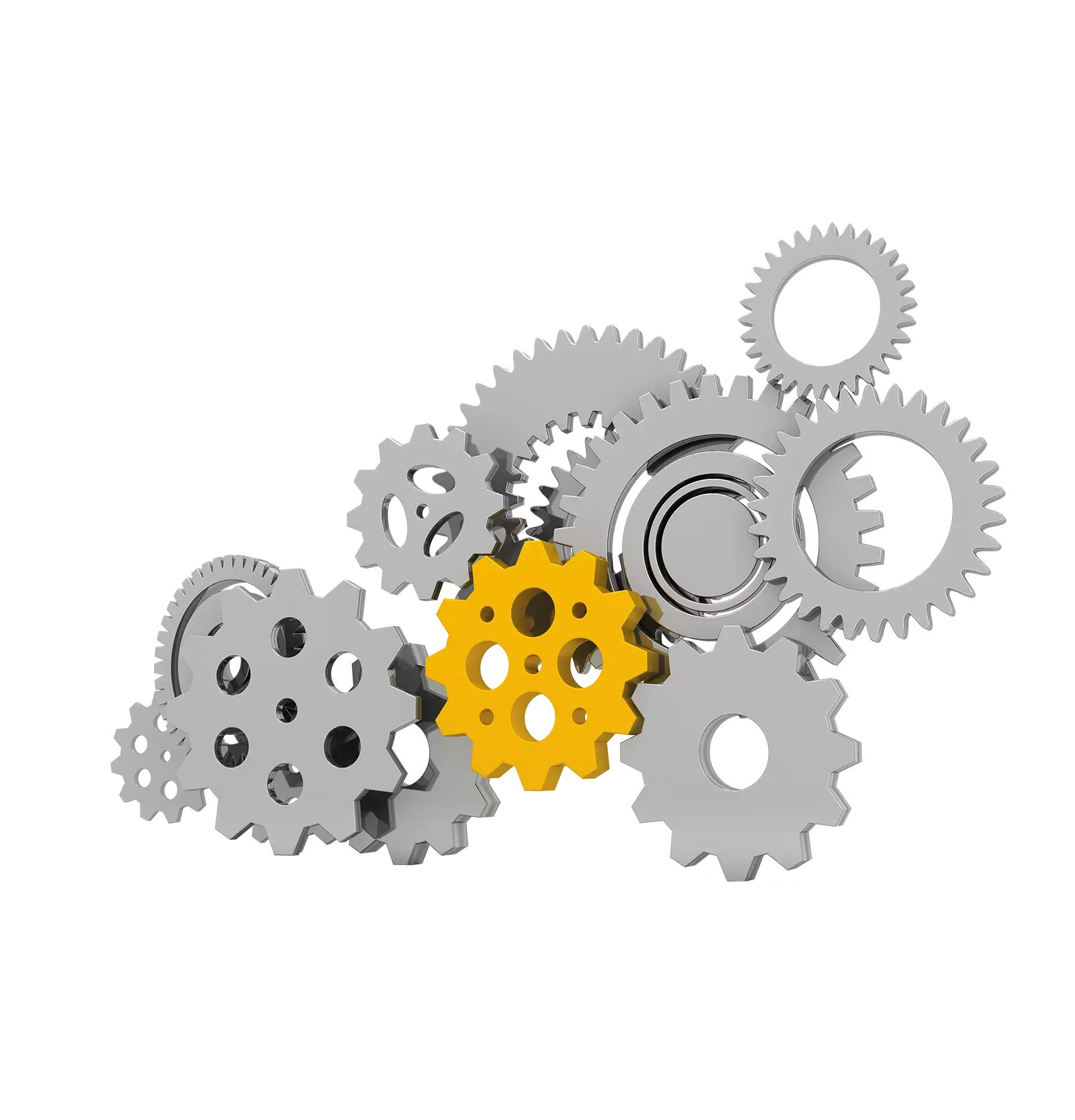Uitgelicht in deze blog
Hoe een ERP voor voedselproductie uw succes toekomstbestendig kan maken
Hoe een ERP voor voedselproductie uw succes toekomstbestendig kan maken

De voedselverwerkende industrie staat allesbehalve stil. Alleen al in de afgelopen jaren hebben we de opkomst gezien van strengere traceerbaarheidsvoorschriften, een grotere focus op voedselveiligheid, frequentere verstoringen van de supply chain, aanzienlijke verschuivingen in de smaak van de consument en een grotere acceptatie van Industrie 4.0-technologieën zoals slimme apparaten en IoT-apparatuur.
Het is duidelijk dat het bijhouden van dit snelle tempo van verandering een noodzaak is voor bedrijven die in deze ruimte actief zijn. Om uw voedings- en drankenproductiebedrijf nu en in de toekomst te laten slagen, is het absoluut noodzakelijk dat u de juiste systemen invoert om uw organisatie wendbaar en zo goed mogelijk voorbereid te houden op wat morgen kan brengen.
Dit proces van modernisering en implementatie van speciaal gebouwde platforms wordt gewoonlijk 'digitale transformatie' genoemd. Er zijn verschillende soorten software die deel kunnen uitmaken van een dergelijk initiatief, maar degene die als onmisbaar wordt beschouwd en in de toekomst als uw technologische basis kan fungeren, is een ERP-systeem (Enterprise Resource Planning) dat is ontworpen voor voedings- en drankenbedrijven.
Dat gezegd hebbende, als u niet bekend bent met alle functies en voordelen van een Food ERP, bent u er misschien niet van overtuigd dat het de investering van tijd, geld en energie waard is. Om te laten zien hoe impactvol de juiste oplossing kan zijn, laten we zeven manieren bespreken waarop een ERP voor voedselproductie uw activiteiten kan verbeteren en u uitgerust kan houden voor de toekomst.
Traceerbaarheidsfuncties voor naleving van de regelgeving
Zowel overheden als consumenten hebben hun verwachtingen verhoogd als het gaat om de traceerbaarheidsnormen van voedings- en drankenbedrijven die zij ondersteunen bij hun aankopen. Dit is niet zonder reden: bidirectionele tracking is immers van cruciaal belang voor de voedselveiligheid en het identificeren van de bronnen van besmettingen en de aangetaste eindproducten.
De traceerbaarheidstools die een branchespecifiek ERP-systeem kan bieden, vergemakkelijken het om te voldoen aan de normen van regelgevende instanties en ervoor te zorgen dat alles wat van uw lijnen rolt, veilig en geschikt is voor consumptie. Met real-time updates via integratie met barcodescanners en een zeer toegankelijke interface kunt u met vertrouwen en snelheid handelen op basis van de informatie die voorhanden is.
En als het overweldigend is om nalevingsmandaten zoals de traceerbaarheidsregel van de Food Safety Modernization Act (FSMA) van de FDA of de EU-verordening inzake ontbossingsvrije producten voor te blijven, moet u weten dat de juiste ERP voor voedselproductie u kan helpen moeiteloos door deze veranderingen te navigeren. Door documentatie te centraliseren, rapportage te automatiseren en het traceren van ingrediënten en producten te stroomlijnen, bereidt een ERP u voor op audits en zorgt het ervoor dat uw producten voldoen aan de strenge veiligheids- en ethische normen die consumenten eisen.
Cloudimplementaties voor maximale flexibiliteit
Als producent van voedingsmiddelen en dranken zijn verstoringen van de supply chain waarschijnlijk een aanhoudende uitdaging voor u. Van materiaaltekorten en stijgende transportkosten tot onvoorspelbare schommelingen in de vraag en stijgende aanbodprijzen, deze problemen onderstrepen de noodzaak voor uw bedrijf om wendbaar te blijven. In tijden als deze is flexibiliteit cruciaal, en een van de beste manieren om het niveau te bereiken dat u nodig hebt, is met een cloudimplementatie van een geavanceerd ERP-platform voor voedselproductie. Omdat uw medewerkers toegang hebben tot het systeem, waar ze ook zijn, met slechts een webbrowser en wifi-verbinding, kunt u bijsturen als dat nodig is en reageren op nieuwe ontwikkelingen die anders uw dagelijkse voedselproductieprocessen zouden onderbreken.
Een cloudgebaseerd ERP voor de voedingsindustrie ondersteunt de operationele efficiëntie door naadloze gegevenssynchronisatie tussen inkoop-, productie- en distributieprocessen mogelijk te maken. Dit maakt het delen van informatie tussen teams en afdelingen sneller en eenvoudiger. Al uw medewerkers hebben toegang tot realtime gegevens, kunnen samenwerken aan beslissingen en gezamenlijk en effectief reageren op eventuele problemen of productie-uitdagingen.
Een cloudgebaseerd ERP-systeem elimineert ook de noodzaak van handmatige upgrades en minimaliseert downtime, waardoor uw activiteiten soepel blijven verlopen en al uw belanghebbenden op één lijn zitten, werkend vanuit een up-to-date 'single source of truth'. Deze naadloze informatiestroom zorgt ervoor dat verstoringen effectiever kunnen worden beperkt, en verouderde software houdt u nooit tegen.
Formulebeheer voor productinnovatie
Passen bij moderne smaken, zoals die voor plantaardige producten, functionele voedingsmiddelen en biologische ingrediënten, is van vitaal belang voor uw winstgevendheid, relevantie en aantrekkingskracht op moderne shoppers, met name de millennials en Generatie Z-kopers die een groeiend deel van de markt vertegenwoordigen. Als zodanig heeft u de tools nodig om nieuwe items te ontwerpen en te maken in lijn met voorkeuren en trends.
De recept- en formulebeheerfuncties van een ERP voor voedselproductie kunnen uw onderzoeks- en ontwikkelingsteams de mogelijkheid bieden om nieuwe aanbiedingen aan te passen, te herhalen en te perfectioneren die voldoen aan opkomende eisen. Geavanceerde mogelijkheden voor receptbeheer helpen u eigen formules te beschermen door ze veilig op te slaan en tegelijkertijd gecontroleerde toegang te bieden aan alleen geautoriseerd personeel. En diezelfde kenmerken dienen ook om processen te standaardiseren, zodat elke batch voldoet aan nauwkeurige ingrediëntenverhoudingen en wettelijke vereisten, waardoor de voedselkwaliteit elke keer weer wordt gegarandeerd.
Wetende dat u ook met nieuwe leveranciers zult werken en de voorraad van de materialen die nodig zijn voor deze nieuwe creaties veiligstelt, zult u ook profiteren van de uitgebreide voorraadbeheerfuncties die een geavanceerde ERP voor voedselproductie kan bieden. Voedings- en drankenbedrijven zoals het uwe kunnen productinnovatie en formulebeheer naar een hoger niveau tillen door PLM-software te implementeren om elke fase van het ontwikkelingsproces van voedingsproducten te stroomlijnen.
Schaalbaarheid om groei mogelijk te maken
In de wetenschap dat de implementatie van een organisatiebreed platform kostbaar kan zijn en maanden - soms jaren - kan duren, moet u een systeem vinden dat lang meegaat en geschikt is voor de reikwijdte van uw bedrijf naarmate het zich uitbreidt. Het moet in staat zijn om mee te groeien met uw groei en de introductie van nieuwe supply chain-partners, producten, personeel en processen mogelijk maken.
ERP's voor voedselproductie zijn ontworpen met dit in gedachten en kunnen net als uw activiteiten worden opgevoerd, waardoor nieuwe lijnen, rollen en afdelingen kunnen worden opgenomen. Met een volledig configureerbare backend die is gebouwd op basis van de wetenschap dat de industrie voortdurend in beweging is en geen twee bedrijven met exact dezelfde omstandigheden te maken hebben, weet u dat uw technologie zich indien nodig kan aanpassen en in de nabije toekomst van dienst zal blijven.
Cloudgebaseerde ERP-systemen voor de voedingsindustrie kunnen de schaalbaarheid verder verbeteren door u ongeëvenaarde flexibiliteit, uitgebreide gegevensopslag en verbeterde toegankelijkheid te bieden. Wat uw behoeften ook zijn, een ERP-systeem voor voedselproductie in de cloud biedt de infrastructuur om groei te ondersteunen. Bovendien kunnen leveranciers van deze oplossingen het voordeel bieden van automatische updates, zodat uw technologie up-to-date blijft zonder de bedrijfsvoering te verstoren.
Kijk ten slotte uit naar leveranciers die een modulaire benadering van software-implementatie bieden, waardoor u geavanceerde ERP-apps kunt toevoegen, en zelfs aanvullende voedselsoftware zoals PLM of Overall Equipment Effectiveness (OEE)-systemen, als u dat nodig hebt. Dit verlaagt de initiële kosten en implementatietijden, maar stelt u in staat uw tech-stack op te schalen en extra voordelen te ontgrendelen naarmate uw digitale transformatie vordert.
Leveranciersbeheer voor veerkracht van de supply chain
Leveranciers vormen de ruggengraat van uw voedselproductieactiviteiten en effectief beheer is van cruciaal belang om een veerkrachtige supply chain op te bouwen en ervoor te zorgen dat uw producten beschikbaar zijn wanneer u ze nodig hebt. Om die redenen biedt een ERP voor voedselproductie een leveranciersportaal om de communicatie te stroomlijnen, de prestaties van leveranciers te volgen, de kwaliteit van ingrediënten en verpakkingen te waarborgen en inkoopbeslissingen te verbeteren, terwijl tegelijkertijd operationele knelpunten worden verminderd.
Met een Food ERP kunt u leveranciersgegevens centraliseren, waardoor u meer inzicht krijgt in de betrouwbaarheid van leveranciers en de consistentie van de levering. Met geavanceerde analyses kunt u patronen identificeren, betere contracten onderhandelen en de inkoop diversifiëren om risico's zoals regionale tekorten of inconsistente kwaliteit van ingrediënten te beperken. Door gebruik te maken van deze tools bent u in staat om een veerkrachtigere supply chain op te bouwen die zich kan aanpassen aan uitdagingen zonder de productieschema's of klanttevredenheid in gevaar te brengen. De catalogi van leveranciersartikelen binnen een Food ERP zorgen ervoor dat alleen artikelen die op voorraad zijn zichtbaar zijn voor aankoop, waardoor het risico op het bestellen van niet-beschikbare materialen wordt verkleind en verstoringen van uw productieschema's worden voorkomen. Bovendien elimineren snelle orderinvoer en naadloze verwerking van leveranciersgerelateerde documenten in inkooporders handmatige fouten, waardoor tijd wordt bespaard en uw supply chain soepel verloopt. Deze extra efficiëntie stelt uw inkoopteam in staat zich te concentreren op het opbouwen van sterkere leveranciersrelaties en het handhaven van een gestage voorraadstroom.
Winstgevendheidsbeheer om de groei te versnellen
Om concurrerend te blijven in de voedselproductie-industrie, waar de marges historisch gezien aan de dunne kant zijn, hangt af van uw vermogen om de winstgevendheid te maximaliseren. Een ERP-systeem voor de voedingsmiddelenindustrie met robuuste mogelijkheden voor winstgevendheidsbeheer stelt uw bedrijf in staat om groei te ontsluiten door kostenstructuren te verfijnen, handelspromoties te verbeteren en verspilling in alle activiteiten te verminderen. Met gedetailleerde inzichten en automatisering binnen handbereik kunt u overschakelen van reactieve naar proactieve financiële strategieën.
Een van de opvallende kenmerken van een geavanceerd ERP-systeem voor voedselproductie is de mogelijkheid om prijs- en handelsbeheer te optimaliseren. Door gebruik te maken van realtime gegevens kunt u kosten, kortingen en promotiecampagnes nauwkeurig evalueren. Dit elimineert het giswerk dat vaak gepaard gaat met prijsbeslissingen, waardoor u concurrerende aanbiedingen kunt opstellen die de marges en klantloyaliteit verhogen. Bovendien zorgt het geautomatiseerd volgen van handelspromoties ervoor dat elke uitgegeven dollar zich vertaalt in een meetbaar rendement op investering (ROI), waardoor uw bedrijfsresultaten verbeteren.
Een ander voordeel van ERP-systemen voor de voedingsmiddelenindustrie is dat ze u helpen uit te blinken in afvalvermindering, wat u kan helpen bij het maximaliseren van de winstgevendheid. Door vraag en aanbod in evenwicht te brengen via de productieplanningsfunctie, helpt een ERP-oplossing u overproductie en tekorten te voorkomen. Bovendien zorgt de functionaliteit voor het beheer van de houdbaarheidsdatum ervoor dat uw ingrediënten worden gebruikt op basis van de eerste vervaldatum, first-out (FEFO), en kwaliteitscontrolefuncties kunnen u helpen overmatige krimp tijdens het koken op te sporen. Dit betekent dat u inefficiënties kunt opsporen en oplossen voordat ze van invloed zijn op uw bedrijfsresultaten.
Geïntegreerde AI-mogelijkheden voor empowerment van werknemers
Het is bijna onmogelijk om in de zakenwereld te bestaan zonder te horen van de "game-changing" voordelen van kunstmatige intelligentie (AI). En hoewel een deel van dat geroezemoes misschien overdrijving lijkt, zijn er tegenwoordig oplossingen op de markt die gebruikmaken van AI om meetbare voordelen en een tastbaar concurrentievoordeel te bieden.
Een ERP-systeem voor voedselproductie met ingebouwde artificial intelligence (AI) kan uw voedsel- en drankenbedrijf transformeren door uw werknemers in staat te stellen hun taken efficiënter en effectiever uit te voeren. AI-gestuurde tools automatiseren repetitieve taken zoals gegevensinvoer, voorraadbeheer en het maken van facturen, waardoor personeel zich kan concentreren op activiteiten met een hogere waarde, zoals innovatie, procesverbetering en klantbetrokkenheid, waardoor de productiviteit wordt gemaximaliseerd en de focus op winstgevendheid wordt gegarandeerd.
Deze verschuiving bevordert ook een meer dynamische en bevredigende werkomgeving, waardoor werknemers een zinvolle bijdrage kunnen leveren aan het succes van de organisatie. Wanneer repetitieve taken tot een minimum worden beperkt en medewerkers de kans krijgen om met geavanceerde tools te werken, voelen ze zich meer betrokken en gewaardeerd, wat de tevredenheid en retentie ten goede komt. In een concurrerende arbeidsmarkt stemt een ERP-systeem met ingebouwde AI-mogelijkheden uw technologie af op de behoeften van werknemers en positioneert het uw bedrijf als een favoriete werkgever, zodat u toptalent kunt aantrekken en uw bedrijf toekomstbestendig kunt maken met stabiliteit van het personeelsbestand.
Bovendien zijn medewerkers op verschillende afdelingen met AI-gestuurde voorspellende analyses en realtime inzichten uitgerust om beter geïnformeerde beslissingen te nemen. Uw verkoopteams kunnen bijvoorbeeld AI gebruiken om bestellingen te optimaliseren op basis van de verwachte aankooppatronen van klanten, en door AI gegenereerde vraagprognoses gebruiken om marketingstrategieën op maat te maken en voorraadniveaus op elkaar af te stemmen.
Alle vakjes aanvinken
Nu hebt u een beter begrip van de belangrijkste voordelen van ERP-technologie en hoe het voedings- en drankenfabrikanten helpt scherp te blijven in perioden van onzekerheid en hun bedrijfskritische doelen betrouwbaarder te bereiken. Maar als u nu ERP-systemen gaat vergelijken, kunt u overweldigd worden door de verschillende opties en geconfronteerd worden met een soort 'analyseverlamming'.
Het identificeren van wat een bepaald ERP-product onderscheidt van een ander zal van groot belang zijn in uw selectieproces. U weet dat u op zoek bent naar een systeem dat is gebouwd voor uw branche, maar let vooral op de sector- en segmentspecifieke functies die een bepaald pakket biedt, waaronder het beheer van het vangstgewicht voor vlees- en visbedrijven of het volgen van zendingen voor AGF-leveranciers.
Aptean Food & Beverage ERP heeft een volledige reeks van dergelijke gespecialiseerde tools, en we bieden ook het soort cloudimplementaties dat hierboven is besproken voor een lichtgewicht aanpak die perfect is voor de wereld van vandaag. Dan is er nog het extra voordeel van het Microsoft Dynamics 365 Business Central-framework van ons platform, dat het voor veel gebruikers vertrouwd maakt en een intuïtieve, gebruiksvriendelijke interface biedt.
Bovendien betekent het kiezen van Aptean als uw leverancier dat u een ervaren partner krijgt met tientallen jaren collectieve expertise en kennis van best practices. Onze toegewijde professionals kunnen helpen bij het in kaart brengen van het implementatieproces, compleet met een tijdlijn en mijlpalen, en uitstekende IT-ondersteuning bieden.
Wanneer u klaar bent om meer te weten te komen en te ontdekken wat Aptean Food & Beverage ERP voor uw voedselproductiebedrijf kan betekenen, kunt u onze zelfgeleide productrondleidingen bekijken of een gepersonaliseerde demo aanvragen met een van onze experts, zodat u het systeem in actie kunt zien.
Omgaan met disrupties in de voedsel- en drankenindustrie
Disrupties komen steeds vaker voor in de voedingsmiddelen- en drankenindustrie. Ontdek hoe ERP technologie u kan helpen deze uitdagingen aan te gaan.



 Jack Payne | Vice President, Product Management & Solutions Consulting
Jack Payne | Vice President, Product Management & Solutions Consulting